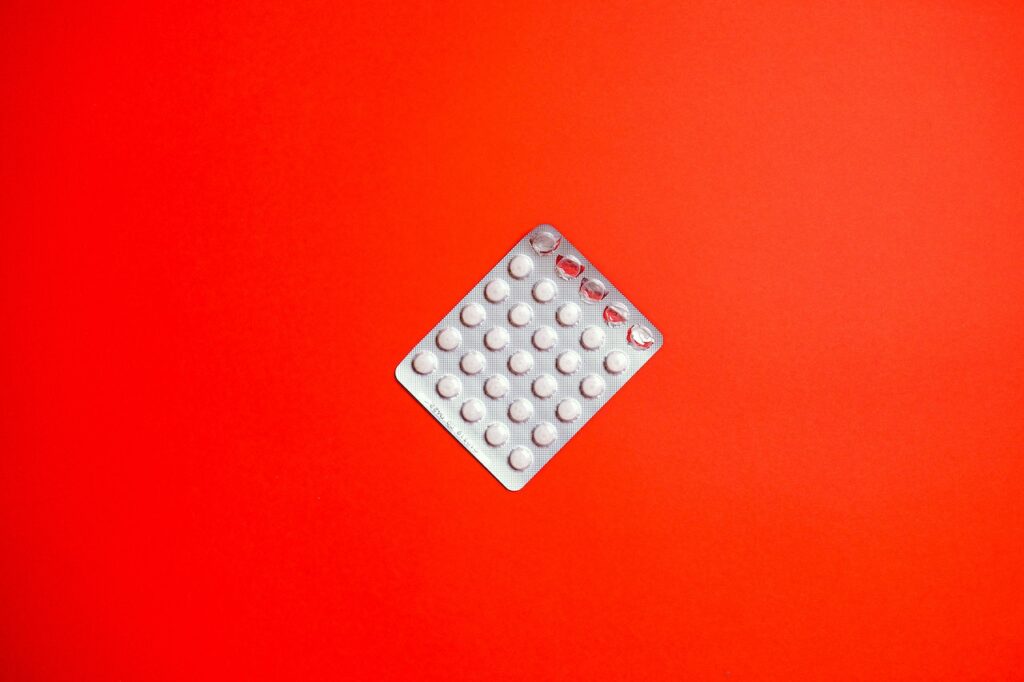Drug and Alcohol Rehabs in Salisbury
Finding the right drug and alcohol rehab in Salisbury is challenging. This is a rather unique and special area of the country. The surrounding Salisbury area is packed with army camps and many ex-service personal like to settle in the surrounding Wiltshire countryside.
This has for many years presented local GP practices with a string of challenges. Service personnel is more likely to suffer from drug and alcohol-related health problems due to combat stress or injuries. Addiction among returning troops to the UK is not uncommon and often has to be dealt with with the help of the private health sector.
Drug & Alcohol Statistics in Salisbury

- During 2021, there were 17 deaths related to drug misuse in Salisbury and the surrounding county of Wiltshire. [1]
- There were also 74 drug poisoning-related deaths in Wiltshire between 2019 and 2021. This increased from 56 between 2017 and 2019. [2]
- Local self-reporting shows that 60% of adults in Wiltshire are consuming too much alcohol.
Also, 1 in 3 adults within Wiltshire is drinking at an increased risk. This includes:
- Increased hospital admissions
- Increased blue light calls
- The need for early assistance from support services
However, drug use within Wiltshire is below the national average, with 0.44% of the population using either opiates or crack versus 0.88% nationally.
- 49% of new presentations to treatment in Wiltshire from 2018 to 2019 were for alcohol addiction. [3]
- In 2018, 392,372 people were suffering from alcohol addiction in Wiltshire, which is equivalent to 1 in 100 people within the adult population. [4]
How Can Alcohol and Drug Addiction Affect Your Life?

Addiction is a chronic disease that makes it difficult for sufferers to stop misusing drugs or alcohol.
This is because these substances cause chemical changes in the brain, by altering neural pathways which relate to reward or pleasure.
The brain, therefore, becomes dependent on drugs and alcohol for survival, meaning that an individual will make constant sacrifices to ensure that they can continue to feed their addiction.
For instance, individuals suffering from addiction may find themselves in financial hardship as they may lose their job and struggle to fund their addiction.
Addiction can also ruin relationships with friends and family members, particularly those of an intimate nature. This leads to loneliness and isolation, which can cause psychological damage in the long term.
For example, individuals may begin to suffer from paranoia, anxiety, and depression.
Addiction can also cause physical damage to an individual’s body, leading to illnesses and conditions such as:
- Cancer
- Lung or heart disease
- Kidney or liver failure
- Stroke
The longer that an individual puts off seeking treatment for their addiction, the more damaging these health complications can become, and will eventually lead to death.
How Do I Know When I Should Seek Help for Addiction in Salisbury?

An individual’s drug or alcohol addiction doesn’t have to be severe for them to seek help.
Addiction treatment will be more effective in the long term the sooner that it is treated, as individuals with mild to moderate addictions are less likely to relapse.
Therefore, you or your loved one should seek help from a rehab clinic in Salisbury as soon as you feel that you may have a problem with drugs or alcohol, no matter how long you have been suffering.
Some of the signs of addiction that you may want to look out for in a loved one include:
- Having to take more of a substance to experience the same pleasurable effects
- Daily use of drugs or alcohol
- Experiencing withdrawal symptoms
- Irritability
- Worsening hygiene
- Trouble sleeping or eating
- Nausea or vomiting
The CAGE Questionnaire
A technique which is often used by addiction specialists to determine whether an individual is suffering from addiction is the CAGE questionnaire.
However, this set of questions can also be used by individuals and their loved ones to decide if they should seek help.
The 4 questions are:
- C – Do you feel that you should cut down on your drug or alcohol intake?
- A – Have you ever found yourself becoming annoyed as a result of criticism of your substance use?
- G – Do you experience feelings of guilt about your substance use?
- E – Do you use alcohol or drugs to relieve a hangover or as an eye-opener in the morning?
If an individual answers yes to two or more of the four questions, they should be referred for treatment at a drug and alcohol rehab centre in Salisbury.
Will Rehab in Salisbury Be Suitable for Me?

If you choose the right form of rehab for your needs, then yes, rehab in Salisbury will be for you.
To determine which individual rehab centre is best for you or your loved one, you should consider:
- Whether you would prefer to live at home or away from home
- The type of therapies on offer
- The severity of your addiction
- The facilities offered at various rehabilitation centres, including accommodation
- Location of the rehab in Salisbury
Overall, if you are reading this article, it is likely that rehab in Salisbury will be suitable for you.
This is because you have accepted that you need help, may be ready to commit to long-term recovery, and wish to explore your options for treatment.
Why Choose Rehab in Salisbury?

Whether you or your loved one are based near Salisbury or live further afield, you may benefit from choosing to attend rehab addiction treatment services in Salisbury.
This is because it is situated in a picturesque countryside location on the Cranborne Chase and is ideally located for commutes from other areas of Wiltshire.
The location of rehab in Salisbury is therefore a great choice for anyone looking for the chance to recover in a peaceful setting away from their home location.
How Does Rehab Work?

Individuals attending rehab in Salisbury will complete a treatment plan that has been created specifically for their own needs.
This is called person-centred treatment and each programme will be designed with the expertise of medical professionals and addiction specialists.
Individuals will also benefit from the help of counsellors, therapists, and wellness specialists, as rehab in Salisbury focuses on holistic well-being alongside addiction recovery.
Many individuals begin their recovery journey by seeking the advice of a GP, who will refer them to NHS outpatient rehab services in Salisbury.
Alternatively, if you or your loved one would prefer a more intensive style of rehab, you can contact inpatient rehab centres directly.
Addiction specialists will assess an individual’s needs and you can expect to be admitted within 24 hours.
1. Outpatient Rehab in Salisbury
Outpatient rehab is often the preferred option for individuals who wish to complete their recovery in the comfort of their own homes, supported by their loved ones.
They will be required to attend an outpatient centre a few times a week on certain days, where they can take part in group and individual therapy to help address the psychological addiction that they may have developed.
Individuals attending outpatient rehab in Salisbury will be provided with medication to help control their withdrawal symptoms. However, they will need to undergo a home detox.
Although this is a cheaper option, detoxing from drugs or alcohol at home can be dangerous.
This is because individuals will not be supervised by medical professionals who can adjust medication levels accordingly to curb dangerous withdrawal symptoms.
Individuals are also at a greater risk of relapse when detoxing within their home environment, particularly for those who may have previously been triggered by those that they were living with.
2. Inpatient Rehab in Salisbury
Inpatient rehab takes place in residential facilities based in and around Salisbury.
Here, patients will receive round-the-clock, high-quality care, with the medical staff there to support their emotional recovery as well as their physical needs.
Although inpatient rehab is a more expensive option, individuals benefit from a comprehensive recovery programme which provides a wide variety of therapies, as well as focusing on fitness and nutrition.
Inpatient rehab centres are often surrounded by picturesque grounds where individuals can walk around as part of their daily exercise.
They will also be given their private en-suite room, giving them a break away from a home environment which may act as a trigger for their addiction issues.
3. Which Rehab Option is Best?
Although the best type of rehab will vary from person to person, we would always recommend inpatient rehab in Salisbury.
This is because it provides the most comprehensive treatment programme for all individuals, no matter the severity of their addiction or mental health disorder.
Being away from home gives individuals the chance to focus fully on their recovery and means that they are less likely to relapse.
Individuals also benefit from 24/7 care, including supervision through the detox process from a medical team to ensure that they remain safe at all times.
What Happens During Alcohol and Drug Rehab in Salisbury?

The prospect of starting the journey to recovery can be daunting for those suffering from drug or alcohol addiction.
However, it is important to know that individuals will receive ongoing support from the second that they reach out for help.
Those entering inpatient rehab in Salisbury will walk into a caring and compassionate environment.
This will not only help them to break their substance dependency but will also provide them with the tools to maintain their sobriety in the long run.
Admission into Inpatient Rehab in Salisbury
Admissions into a residential programme can either occur immediately or on a date planned by an individual and their loved ones.
The first part of the process involves assessment, which is completed over the phone or when an individual arrives. This will assess an individual’s physical and mental health, medical history, and personal circumstances at home.
This allows medical professionals and addiction specialists to determine the appropriate treatment programme and therapies for individuals.
Medical Drug and Alcohol Detox in Salisbury
Once individuals have been admitted to rehab in Salisbury, they will then undergo the medically assisted detoxification stage of rehab.
This process breaks an individual’s physical dependence on drugs or alcohol and uses medication to help them cope with withdrawal symptoms or cravings.
This is because some withdrawal symptoms resulting from sudden abstinence can be dangerous and can lead to health complications or death if not properly controlled.
Medication is therefore prescribed to those who are dependent on:
- Alcohol
- Opiates
- Benzodiazepines
- Barbiturates
Therapy for Alcohol and Drug Addiction in Salisbury

After completing detoxification, individuals are then ready to begin the next phase of rehab, which is therapy.
Whereas detox aims to break an individual’s physical dependency on alcohol or drugs, therapies help to address the underlying psychological issues that may have led to an individual’s addiction.
There is a range of therapies that are offered by inpatient rehab centres in Salisbury, which all aim to help individuals find new ways of thinking.
This will allow them to find happiness and pleasure in other things outside of alcohol or drugs.
1. Cognitive Behavioural Therapy
Cognitive Behavioural Therapy (CBT) is an effective form of talking therapy which aims to change destructive behavioural patterns that may have led an individual to substance misuse.
Individuals will work with a CBT specialist who will provide them with strategies to help them address their problems in the present.
They will be encouraged to look towards the future rather than to the past and will learn how to tackle issues using real-world scenarios.
2. Dialectical Behavioural Therapy
As a talking therapy, Dialectical Behavioural Therapy (DBT) is similar to CBT, which is recommended for individuals experiencing intense emotions whilst in recovery.
However, the difference between the two types of therapy is that DBT encourages individuals to accept their problems.
Once acceptance has occurred, individuals will be in a better frame of mind to put behavioural strategies into place to reduce the likelihood of relapse.
3. Twelve-Step Facilitation Therapy
For those entering drug and alcohol rehab in Salisbury, Twelve-Step Facilitation Therapy (TSF) consists of individuals following a 12-step programme which helps to structure their recovery.
This was originally developed by Alcoholics Anonymous (AA) and encourages individuals to first accept their addiction, before asking for help from a higher power.
4. Motivational Interviewing
Motivational interviewing consists of individuals being asked a set of questions by a qualified therapist.
These questions are designed with the individual in mind and help to remind them of the reasons that they chose recovery in the first place.
For instance, they may want to recover to improve their relationships with loved ones.
This provides individuals with a focus that they can refer back to throughout their recovery, which helps them to maintain sobriety in the long term.
5. Co-Dependency Treatment
When an individual is emotionally reliant on another person, this is known as co-dependency.
Drug and alcohol addiction can offer result in co-dependency, which puts strain on the relationship between an individual and their loved one.
Co-dependency therapy, therefore, aims to address the behaviours which may have led to an individual’s dependency.
6. Holistic Therapies
Addiction specialists at rehabs in Salisbury aim to help individuals improve their overall well-being, as well as their physical health.
Holistic therapies give individuals something to focus on outside of their addiction, to show them that they can find happiness and pleasure in other sources.
Therapies ranging from yoga and meditation to art and music are also aimed at teaching skills to individuals that they can take with them into the outside world, to improve their quality of life.
What Happens After Rehab in Salisbury?

After an individual has completed their rehab treatment programme in Salisbury, they may be wondering what lies ahead of them when they leave.
It is common for individuals to worry about returning to the real world after having access to 24/7 support and care.
These worries consist mainly of concerns about relapse, particularly for those returning to environments which previously triggered their addiction.
However, it is for this reason that rehabs in Salisbury provide free aftercare for individuals as part of their treatment programme.
There are several options for aftercare, which may involve regular phone calls or in-person meetings with the rehab’s addiction therapists, to ensure that the individual remains focused on their recovery.
Relapse Prevention Plan
A common form of aftercare that most rehabs in Salisbury provide all patients with is a relapse prevention plan.
This will consist of guidance for individuals to apply to their lives in the outside world and may provide them with strategies to help them deal with cravings and triggers.
For example, the HALT technique provides a set of four questions that individuals can ask themselves when they become triggered. These are:
- H – Am I hungry?
- A – Am I angry?
- L – Am I lonely?
- T – Am I tired?
Rather than immediately abusing substances, asking themselves these questions encourages individuals to stop, take a moment, and consider fulfilling their other cravings instead.
This technique, therefore, helps to prevent relapse for individuals leaving drug and alcohol rehab.
A relapse prevention plan may also provide individuals with a number that they can call if they are struggling or feel that they are at risk of relapse.
Addiction Support Groups in Salisbury
As part of rehab aftercare, there are many addiction support groups that individuals can attend in Salisbury.
These groups provide individuals with the opportunity to share their recovery journeys with others, including their struggles and achievements. This aims to keep them on track with their recovery and reduces the chance of future relapse.
One such support group is Alcoholics Anonymous, where those suffering from alcohol addiction meet several times a week to support their recovery through the twelve-step programme.
Narcotics Anonymous supports those with any form of drug addiction, although there are also more specific mutual support groups such as Cocaine Anonymous.
NHS Addiction Treatment Options Near Salisbury

If you or your loved one are concerned about the cost of private drug and alcohol rehab treatment, there are options for free NHS addiction treatment throughout Salisbury and the surrounding areas.
For example, the Swindon and Wiltshire Active Recovery Service is provided by the charity Turning Point. They aim to help individuals put together an action plan to help them in recovery and their team of peer mentors offers a range of interventions.
These can be accessed through your GP, who can refer individuals to the most appropriate services for them.
This may include counselling, although NHS counsellors do not specialise in addiction and therefore may not be able to provide the level of support necessary for an individual.
However, as NHS services are free, they often have long waiting lists. This means that individuals may be waiting months to access treatment, which could cause their addiction to worsen.
They may begin to experience significant life-threatening health complications that could have been avoided if they were able to access treatment sooner.
For those who feel that they would benefit from inpatient rehab in Salisbury, the NHS only offers this to a small number of individuals as funding is highly limited.
This means that it is difficult to obtain a place and individuals will be limited to lower-cost, lower-quality treatment centres than those funding their care.
FAQs

Below, we provide some answers to commonly asked questions about the addiction rehab process:
1. What is the Success Rate for Rehab in Salisbury?
It is hard to predict the exact figures when it comes to success rates for rehab in Salisbury.
This is because the success of a rehab treatment programme in Salisbury depends on an individual’s commitment to recovery.
Those who commit to detox, therapy, and changing their behaviours are more likely to leave rehab having successfully embarked on the path to recovery.
It also depends on the individual facility. For instance, an NHS study showed that the best-performing rehab facilities across the UK had success rates of between 60 and 80%.
However, researchers also found that lower-performing rehab facilities struggled to achieve a 20% success rate. [5]
2. How Can I Get Someone into Rehab in Salisbury?
If a loved one is struggling with addiction, they must access treatment as soon as possible to prevent their addiction from worsening.
However, it may be difficult for an individual to admit that they need help or find the strength to accept rehab in Salisbury.
This is because they may not want to break their substance dependency or may be ashamed of their addiction. If this is the case, then you and your loved one may benefit from an intervention.
Addiction interventions consist of the loved ones of an individual planning a gathering with the help of a professional interventionist.
The gathering aims to help the individual recognise how their unhealthy behaviours are damaging to themselves and those around them.
It also gives loved ones the chance to communicate positively with the individual and encourages them to understand why they should seek professional help from rehab in Salisbury.
For an intervention to be successful, it must be properly planned. This may involve:
- Collecting information about the individual’s addiction
- Researching treatment methods
- Coming up with examples of how the individual’s behaviour has impacted their loved ones
- Establishing consequences in case an individual continues their drug or alcohol abuse
3. How Long is Drug and Alcohol Rehab in Salisbury?
The amount of time that it takes for an individual to complete a rehab treatment programme in Salisbury will vary.
This is because recovery tithe me is dependent on several factors, including:
- The severity of an individual’s addiction
- Which substances an individual is dependent on
- Their home circumstances
- An individual’s level of commitment to recovery.
The detox process takes 7 to 10 days, but individuals should remain in treatment for longer so that they can gain the tools to maintain their sobriety in the long run.
For example, they will be able to undergo a course of therapy that will help them to uncover the emotional and psychological issues that may have led to their substance dependency in the first place.
An extended rehab programme can therefore last anywhere from 14 to 90 days, though some individuals may choose to stay in a residential rehab centre for a year or more if they feel that this would be beneficial to their recovery.
4. What is the Cost of Drug and Alcohol Rehab in Salisbury?
Although the cost of rehab in Salisbury varies depending on the facility that you choose, a typical 30-day stay can be priced anywhere from £5000 to £10000.
This may seem expensive, but it is important to remember that rehab is an investment in the long-term health of you or your loved one.
The cost of maintaining an individual’s addiction will also have a larger financial cost in the long term, as well as taking a greater toll on their mental and physical health.
If you are worried about the cost but feel that you or your loved one would benefit from private rehab treatment in rehab, you may be able to get funding for your treatment through an insurance policy.
However, not all insurance providers cover private rehab treatment, and not all facilities will accept payment from private insurance, so be sure to check with the rehab of your choice beforehand.
5. What Happens During a Typical Day in Inpatient Rehab?
The activities that an individual does daily when in drug and alcohol rehab clinics in Salisbury will vary depending on their personal needs.
This is because every patient will have a bespoke treatment programme that will require them to conduct different tasks.
For example, one individual may practice art therapy every day, whereas another may benefit from taking part in group sports and exercise.
However, a typical day for an individual in residential rehab post-detox will consist of group and individual therapy sessions. Individuals will also be encouraged to exercise and will be taught the importance of good nutrition as part of a healthy life.
Overall, the daily activities that an individual takes part in on a day-to-day basis are designed to help individuals rebuild their lives and learn how they can live a healthy, sober everyday life outside of the treatment programme.
6. Does Rehab in Salisbury Provide Mental Health Support?
Almost 60% of adults in treatment for substance misuse in Wiltshire have self-reported a mental health issue upon admission to rehab. [6]
This figure is high because those with a drug or alcohol addiction often turn to substance abuse in an attempt to mask the symptoms of a mental health condition.
The answer to this question is therefore yes, rehabs in Salisbury and the surrounding areas provide help for those with a mental health condition as part of the goal to address holistic health and wellbeing.
Mental health professionals will therefore recommend dual diagnosis treatment for these individuals.
Dual diagnosis is the existence of two or more addictions and mental health conditions and can include conditions such as:
- Depression
- Anxiety
- Bipolar
- Schizophrenia
- Post-Traumatic Stress Disorder
- Borderline Personality Disorder
These conditions must be identified when an individual first enters rehab in Salisbury so that medical professionals can design an appropriate programme that treats all conditions.
7. Is Family Support Available?
It is common for the loved ones of individuals to also be emotionally affected by their drug or alcohol addiction.
If you feel that you may need professional support, there are several options available that may help you navigate your loved one’s recovery, whilst maintaining your mental health.
For instance, many rehabs in Salisbury offer family therapy sessions, which allow family and friends of individuals suffering from addiction to get together and discuss their struggles.
As part of rehab aftercare, they will also provide advice on relapse prevention and educational sessions which will help individuals to better support their loved ones through their recovery.
Family support is essential for those on a recovery journey, as an individual will return home to a united front and can continue to receive the care that they need. They are therefore more likely to maintain their sobriety in the long run.
8. What If I Have Not Told Anyone That I Am Suffering from An Addiction?
Due to the stigmas surrounding addiction, many of those suffering are reluctant to reach out and ask for the help that they need.
If you are struggling with addiction, it’s important to know that keeping your addiction a secret from your loved ones will only hurt your relationship in the long run.
It is therefore better to confide in them and gain their support, as this will make recovery much easier.
We understand that honesty can be difficult when substance abuse is involved, which is why when you enter drug and alcohol rehab in Salisbury you will be given guidance on how to discuss your addiction with a loved one.
Contacting Rehab Recovery

For more information on detox and rehab options in Salisbury, contact Rehab Recovery today at 0800 088 66 86.
When you contact us, we shall outline a variety of treatment options that are available to you in Salisbury. This includes both private and statutory addiction treatments.
References
[1] Deaths Related to Drug Poisoning by Local Authority, England and Wales, Office for National Statistics, August 2022, https://www.ons.gov.uk/peoplepopulationandcommunity/birthsdeathsandmarriages/deaths/datasets/drugmisusedeathsbylocalauthority
[2] Wiltshire Substance Misuse Health Needs Assessment: A Life Course Approach, Wiltshire Council, 2019 https://www.wiltshireintelligence.org.uk/wp-content/uploads/2020/01/Substance-misuse-HNA-Final-version.pdf
[3] Wiltshire Substance Misuse Health Needs Assessment
[4] Alcohol Dependence Prevalence in England, Public Health England, March 2021
[5] The Role of Residential Rehab in An Integrated Treatment System, NHS National Treatment Agency for Substance Misuse
[6] Wiltshire Substance Misuse Health Needs Assessment


